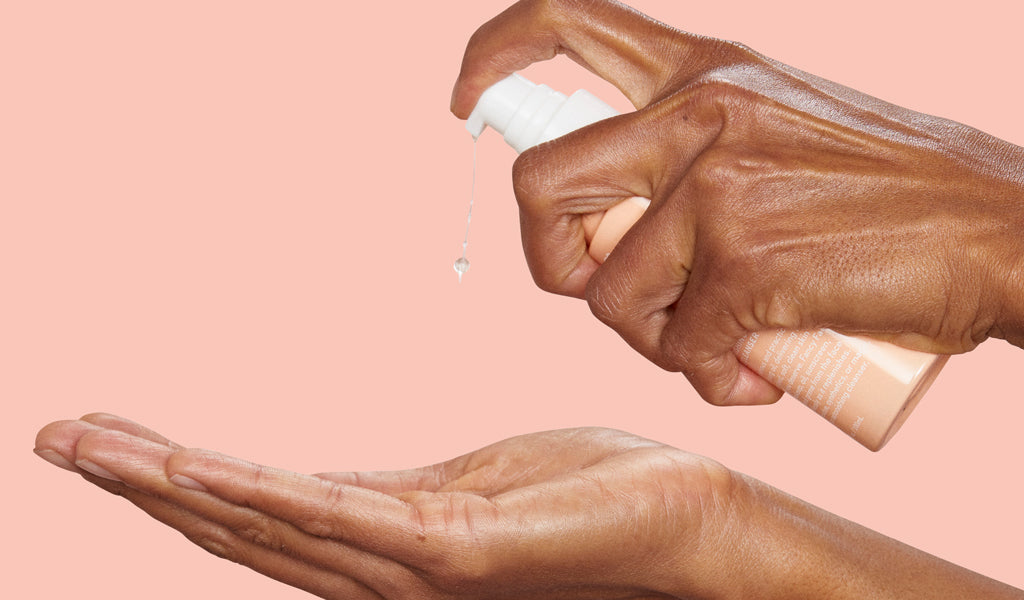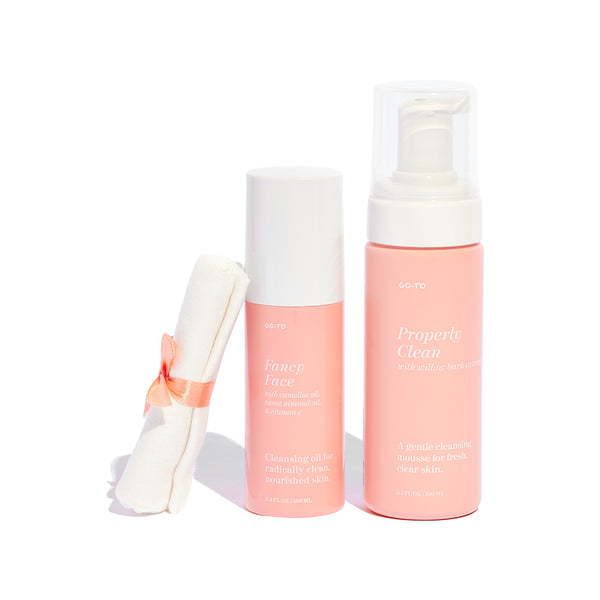Why Your Skincare Routine Needs An Oil Cleanser If You Have Oily Skin
Megan Kelly

Oil cleanser-curious but feeling nervous because you’ve got oily skin? We can help with that.
We tapped Dermal Therapist and all-round skin wizard, Yadira Cauchi, for help navigating this tricky topic. Here, Yadira details why oily skin types should be reaching for oil-based cleansers, how to work them into your routine and the ingredients that are marvellous for that cute face of yours.
Oils for oily or acneic skin may seem counterintuitive but oils are lipophilic, meaning they’re attracted to and dissolve other lipids (hello, excess sebum) easily. Oil-based cleansers (ahem, Fancy Face) are also incredible for dissolving tough water-proof formulas and SPF while supporting your skin barrier, balancing oil production, nourishing, and even calming inflammation.
“People with oily skin can include an oil-based cleanser in their routine... [as they] won't strip your skin and will protect your skin's pH—making them perfect for most skin types,” says Yadira. “However, I wouldn't recommend one be used as a stand alone cleanser. Instead I'd always recommend it be included as part of a double cleanse.”
Below we tackle the trickiest and most common oil cleanser versus oily skin questions we get asked at Go-To to help you cultivate a routine that supports your complexion.
Do I really need to double cleanse?
Double cleansing can seem laborious but it’s a handy way to thoroughly clean skin and whisk away dirt and bacteria while replenishing, hydrating and soothing. This can be supremely beneficial to oily skin types who might also be battling redness, parched skin and congestion.
Oil-based cleansers (hey! Fancy Face!) pair wonderfully with their water-based counterparts (we’re looking at you, Properly Clean) to beat congestion and give a satisfying and effective clean.
The ultimate one-two punch for soft, clean skin. Double cleansing is ideal for faces slathered in SPF, makeup, skin care, or an adorable colony of pastry crumbs. Includes Properly Clean and Fancy Face nourishing oil cleanser.
Double Cleanse
Soft and Clean
What are the best ingredients for oil cleansers?
Reach for products rich in lightweight, non-comedogenic botanical plant oils like sunflower, sweet almond, argan, jojoba, hemp and passionfruit seed.
Which ingredients should I avoid for oil-based cleansing?
Avoid comedogenic (pore-clogging) oils like coconut, cottonseed and wheat germ, especially if you’re acne-prone.
Are oil cleansers good for acne-prone skin?
Those with acne-prone skin should approach with caution Yadira explains, especially if you’re working with complex acne types like cysts or nodules to prevent aggravating their skin.
“I wouldn't recommend cleansing oils to anybody with severe types of acne and I would only recommend cleansing oils to those with acneic skin as part of a double cleanse at night, not as their only cleansing option,” says Yadira, who emphasises avoiding comedogenic oils.
How to introduce an oil cleanser in your skincare routine
Start slow to give skin time to adjust and to get a feel for using the product.
Aim for once or twice a week as part of your evening routine, paired with a mousse or gel cleanser you’re familiar with, and then amp up as needed. A double cleanse is ideal for days when you’re wearing transfer-resistant makeup and SPF. No need to double cleanse if you didn’t bother to leave the house today.
Just remember to give your oil cleanse a chance to work, that means massaging it in for 30 to 60 seconds at least. Oil cleansers also play well with facial oils, one certainly doesn’t negate the need for the other.
“Honestly, once you try it you won't go back,” says Yadira. “Removing your makeup properly is so important and will help the rest of the products in a routine work more effectively.”
Questions? Comments? Good podcast recommendations? Drop them below.
*If an oil cleanser irritates the skin or causes breakouts, drop the product from your regimen. If acne persists, consult a doctor or skin professional to see if there may be an underlying cause.



